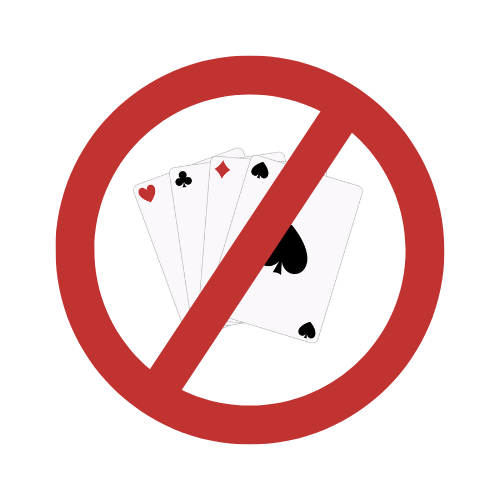Support and advice for anyone struggling with addiction
Information | Services | Signposting | Useful Tools

What is an addiction?
Addiction is a complex and multifaceted condition that affects millions of people worldwide. It is characterised by compulsive engagement in rewarding stimuli, despite adverse consequences.

Why do we get addicted?
Addiction is a complex condition that affects millions of people globally, including a significant number in the UK. Understanding why we get addicted requires exploring various biological, psychological, and social factors.

Overcoming addiction
Addiction is a challenging condition that affects individuals physically, mentally, and emotionally. Overcoming addiction is a multifaceted process that requires commitment, support, and effective strategies.

Hello! I’m Sam
BSC Therapeutic Interventions for Addictions
For many years I have worked with people helping them to overcome their addictions, whilst also learning to live with and overcome my own addictions.
This website provides information, tools, and techniques to help you to manage your addictions.
Common Problems
Unexpected Mood Swings
Read More
Unexpected mood swings are a common symptom of addiction, driven by the chemical imbalances and psychological stress associated with substance dependency. These abrupt emotional changes can range from euphoria to deep depression, often occurring without an obvious trigger. The brain’s altered reward system and withdrawal effects play a significant role in these fluctuations, leading to instability in a person’s mood and behaviour. This emotional volatility can strain relationships, impact daily functioning, and exacerbate the overall struggle with addiction.
Stress & Anxiety
Read More
Stress and anxiety are common consequences of addiction, driven by the physical and psychological demands of substance dependency. The brain’s chemical alterations and the body’s need for the substance create a constant state of tension and worry. Withdrawal symptoms and the fear of being unable to obtain the substance further exacerbate these feelings. Additionally, addiction often leads to life stressors, such as financial problems and strained relationships, which can intensify anxiety and create a relentless cycle of stress.
Nobody to Talk To
Read More
Addiction often leads to social isolation, leaving individuals with no one to talk to. As the addiction deepens, relationships with family and friends may become strained or severed due to mistrust, conflict, and the addict’s prioritisation of substance use over connections. This isolation can exacerbate feelings of loneliness and despair, creating a vicious cycle where the lack of support and understanding drives further substance use. The absence of a support network makes it even more challenging to seek help and start the recovery process.
Family Member Conflict
Read More
Addiction often leads to significant conflict within families, straining relationships and creating a hostile home environment. The unpredictable behaviour and neglect of responsibilities associated with addiction can lead to mistrust, resentment, and frequent arguments. Family members may feel frustrated and helpless, and efforts to support or intervene can be met with resistance or denial from the addicted individual. This ongoing tension can damage familial bonds, making it difficult to maintain a supportive and cohesive family unit.
Job Loss or Change
Read More
Job loss is a frequent consequence of addiction, as the individual’s ability to perform work-related duties deteriorates due to substance use. Absenteeism, decreased productivity, and erratic behaviour can lead to disciplinary actions or termination. The lack of focus and reliability undermines professional relationships and the capacity to meet job expectations. This loss of employment not only impacts financial stability but also exacerbates the stress and anxiety associated with addiction, creating a destructive cycle that hinders recovery and further strains personal and professional life.
Depression
Read More
Depression is a common result of addiction, driven by the chemical imbalances and lifestyle disruptions that substance abuse causes. The addiction alters brain function, diminishing the ability to experience pleasure and deepening feelings of sadness and hopelessness. The associated social isolation, conflicts with loved ones, and loss of meaningful activities or employment further exacerbate these depressive symptoms. This combination of physical and emotional distress creates a vicious cycle, where the individual may use substances to self-medicate, ultimately worsening their depression.
Irregular Sleep Cycles
Read More
Irregular sleep cycles are a common effect of addiction, as substances can significantly disrupt normal sleep patterns. Stimulants like cocaine or methamphetamine can lead to insomnia, while depressants such as alcohol or opioids might cause fragmented sleep or excessive daytime drowsiness. The withdrawal phase often exacerbates these sleep issues, with symptoms like insomnia or vivid nightmares. This lack of restorative sleep further impairs cognitive function and emotional stability, creating a vicious cycle that complicates recovery efforts and overall well-being.
Infidelity
Read More
Infidelity can be a consequence of addiction, as compulsive needs often lead to impaired judgment and risky behaviours (especially for those with sex addiction). Individuals struggling with addiction might seek out relationships or encounters that provide access to substances or escape from their realities, resulting in betrayal of their partners. The secrecy and deception involved in both maintaining the addiction and engaging in infidelity can deeply damage trust and intimacy within relationships, causing emotional pain and further complicating the individual’s personal and recovery challenges.
Harmful Thoughts
Read More
Harmful thoughts are a frequent consequence of addiction, often driven by the psychological and emotional toll of substance abuse. These thoughts can include feelings of worthlessness, hopelessness, and severe self-criticism. The brain’s altered chemistry due to addiction exacerbates these negative thought patterns, making it challenging to break free from the cycle of substance dependence. Additionally, the isolation and strained relationships that commonly accompany addiction can intensify these harmful thoughts, further hindering an individual’s ability to seek help and recover.
Isolation & Loneliness
Read More
Isolation and loneliness are common outcomes of addiction, as the dependency on substances often leads to withdrawal from social interactions and relationships. The shame, guilt, and secrecy associated with addiction can cause individuals to distance themselves from family and friends. Over time, the focus on obtaining and using the substance takes precedence over maintaining social connections, resulting in profound loneliness. This isolation further entrenches the addiction, making it harder for individuals to seek help and reconnect with their support networks.
Strained Relationships
Read More
Addiction often leads to strained relationships, as the behaviours associated with substance abuse erode trust and create conflict. Loved ones may feel hurt, betrayed, and frustrated by the addict’s actions, such as lying, stealing, or neglecting responsibilities. The addict’s prioritisation of substance use over relationships can lead to emotional distance and resentment. These strained dynamics can result in frequent arguments, a breakdown of communication, and sometimes complete estrangement, further isolating the individual and exacerbating their addiction.
Financial Pressure
Read More
Financial pressures are a significant consequence of addiction, as the cost of sustaining a substance dependency often leads to monetary strain. Individuals may deplete their savings, accrue debt, or resort to illegal activities to fund their addiction. This financial instability can result in unpaid bills, loss of housing, and inability to afford basic necessities, exacerbating the stress and anxiety associated with addiction. Furthermore, the strain on finances can also impact relationships, leading to conflicts and additional emotional burdens for both the individual and their loved ones.
